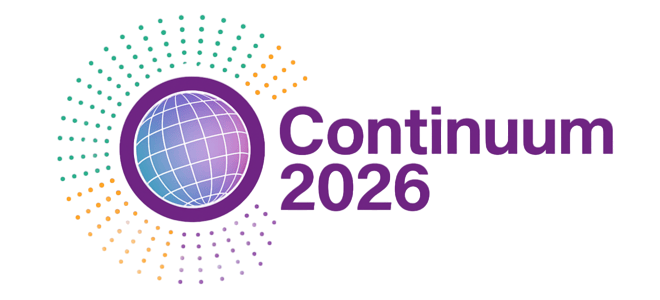WHAT IS PERIPHERAL NEUROPATHY?
Peripheral neuropathy (PN) is a disease of the peripheral nerves. These are all the nerves in the body except for those in the brain and spinal cord.
About 30% of people with HIV develop PN. Some PN is a breakdown of the nerve endings (axons) that send sensations to the brain. Sometimes, PN results from damage to the coating of nerve fibers (myelin). This affects the transmission of pain signals to the brain.
PN is much less common now that the older antiretroviral medications (ARVs) that were a common cause of PN are not used anymore.
PN can be a minor nuisance or a disabling weakness. It is usually a feeling of pins and needles, burning, stiffness, or numbness in the feet and toes. It can also be tickling sensations, unexplained pain, or sensations that seem more intense than normal. PN symptoms can come and go. Serious PN can cause difficulty walking or standing.
WHAT CAUSES PN?
PN can be caused by HIV infection of nerve cells, by ARVs used to treat HIV, other health problems, or other factors. Risk factors for PN include higher HIV viral load, diabetes, age greater than 50, and heavy alcohol use. Other risk factors are the use of cocaine or amphetamines, cancer treatments, thyroid disease, or deficiency of vitamin B12 or vitamin E. A study in 2009 found that Latinx/Hispanic people may have a higher rate of PN. The researchers suggested follow-up studies.
Several HIV drugs can cause PN. The most important are the “d” drugs; ddI (didanosine, Videx) and d4T (stavudine, Zerit). These “d” drugs are no longer used due to the frequency of side effects.
Zidovudine (AZT, Retrovir,) abacavir (Ziagen), non-nucleoside reverse transcriptase inhibitors (NNRTIs), protease inhibitors (PIs), and integrase inhibitors do not appear to cause PN.
HOW IS PN DIAGNOSED?
No laboratory testing is needed to diagnose PN, the signs and symptoms are enough. Special tests may be needed to find the cause of PN. These tests measure tiny electrical currents in nerves and muscles. The amount or speed of these electrical signals drops with different types of PN. However, many patients with PN are not diagnosed correctly.
HOW IS PN TREATED?
Talk to your healthcare provider about discontinuing any drugs that might be causing PN. Drug-induced PN normally goes away if the drugs are stopped when PN first appears. However, this can take as long as 8 weeks. If you continue to take the drugs, the nerve damage might become permanent.
Non-drug treatments: Some simple things can reduce the pain of PN:
-
- Wear looser shoes
- Don’t walk too far
- Don’t stand for too long a time
- Soak your feet in ice water
A recent study showed the benefit of smoking marijuana to relieve PN pain.
Drug treatments: No drug has been approved to repair nerve damage. Some healthcare providers use drugs developed to treat seizures, such as gabapentin (Neurontin) or phenytoin (Dilantin). Antidepressants such as amitriptyline may also help. L-acetyl-carnitine (also called acetyl-l-carnitine or acetyl carnitine) has shown initial good results.
Treatments depend on how serious the symptoms of PN are.
-
- Mild symptoms: Ibuprofen (Advil) can be used.
- Moderate symptoms: Amitriptyline or nortriptyline can be used. These anti-depressants increase the brain’s transmission of nerve signals. Other treatments include Neurontin, an anticonvulsant drug, and a gel containing the anesthetic lidocaine.
- Severe symptoms: Narcotic pain relievers such as codeine or methadone can be used. The anti-seizure medication pregabalin (Lyrica) is also used to reduce PN pain. However, a study in 2010 found no benefit to pregabalin.
Other drugs being used for PN include patches or creams for local treatment. These contain the anesthetic lidocaine, or capsaicin, the chemical that gives hot chili peppers their heat.
Nutrient therapies: Nutrient therapies have been studied for PN caused by diabetes:
-
- B vitamins. Several B vitamins may be useful in treating diabetic neuropathy. These include biotin, choline, inositol, and thiamine. They appear to improve nerve function.
- Alpha-lipoic acid may help protect nerves from inflammation.
- Gamma linolenic acid, found in evening primrose oil, has been reported to reverse nerve damage in some diabetics.
THE BOTTOM LINE
Peripheral neuropathy (PN) is a disease of the nervous system. It causes strange sensations, especially in the feet, legs, and fingers, and can cause pain. The pain might be mild or so severe that it prevents someone from walking.
Tell your healthcare provider immediately if you have any signs of PN. You will probably stop taking any drugs that can cause PN. If that doesn’t take care of the problem, you may be tested to see what’s causing the PN. There are different treatments for different causes of PN.
Drugs can be used to control the pain of PN and several nutrient therapies might help repair nerve damage.
MORE INFORMATION
The Foundation for Peripheral Neuropathy: HIV/AIDS
Numb Toes and Aching Soles: Coping with Peripheral Neuropathy, by John A. Senneff
Reviewed July 2025
Print PDF




